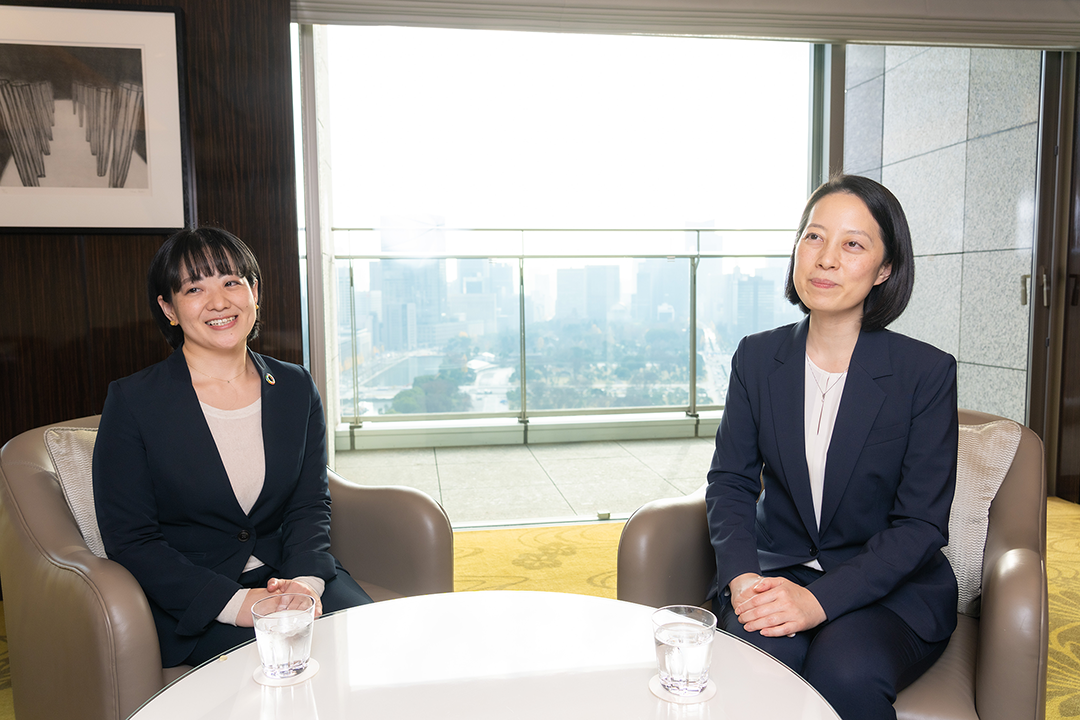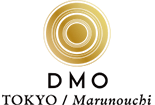SUSTAINABILITY
Interview
Nurturing people and harmoniously coexisting with nature and society.
Evolving into a hotel offering ‘Omotenashi(Japanese hospitality) for the future.’
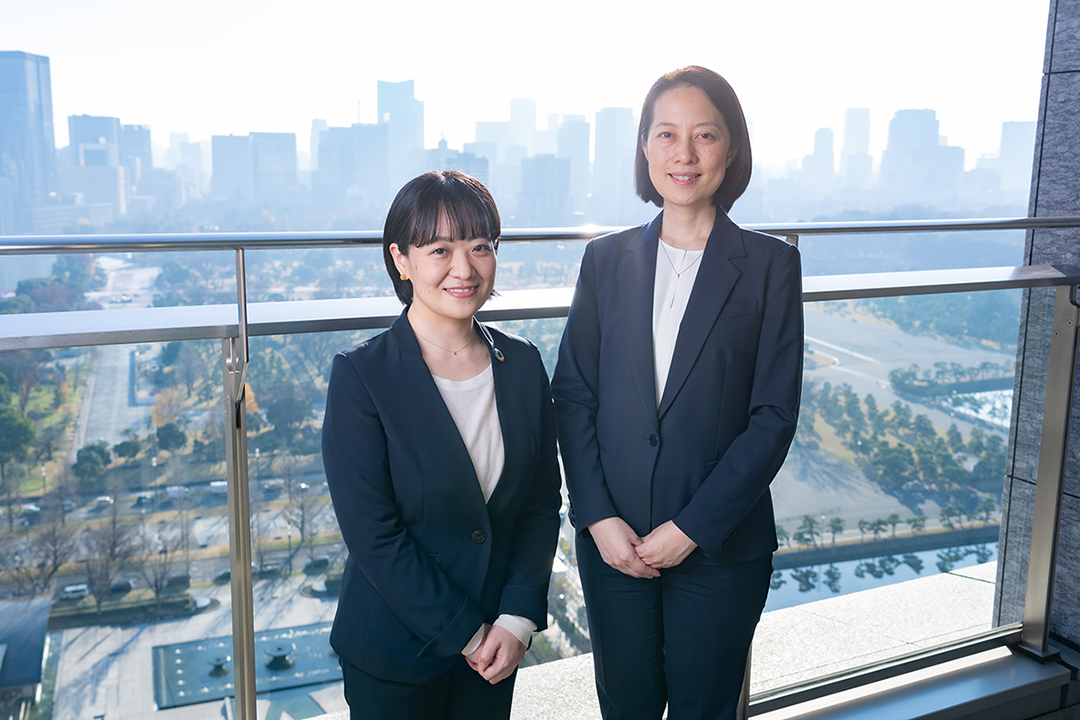
Asami Koizumi(Left)
Palace Hotel Co., Ltd.
Director, Brand Strategy, Brand Management
Palace Hotel Co., Ltd.
Director, Brand Strategy, Brand Management
Fumi Yanagihara(Right)
Palace Hotel Co., Ltd.
Director, Brand Management
Palace Hotel Co., Ltd.
Director, Brand Management
Palace Hotel Tokyo has been focusing on harmoniously coexisting alongside nature and the local community through endeavors such as being the first in the hotel industry to promote turning food waste into fertilizer. Under the newly established sustainability concept of ‘Omotenashi for the future,’ the company has strengthened the spread of these endeavors within its business and earned the Eco Mark Award 2021 Excellence Prize for company-wide initiatives. We spoke to two staff members from the Brand Management Office that leads the company’s push for sustainability.
A hotel conducting ongoing endeavors amid the abundant nature of Marunouchi next to the outer garden of the Imperial Palace
━━━
Palace Hotel has been continuously carrying out a variety of social and environmental activities since the 1990s even before the CSR approach became widespread. Please tell us about the backdrop to those activities.
Yanagihara:
Palace Hotel was originally established amid the abundant nature of Marunouchi and has been in business for over half a century. I joined the company in the 1990s and vividly remember experiencing the changing of the four seasons as I commuted to work. Though located in the city center, I saw dragonflies in autumn and the palace moat covered with thin ice in the winter. Within that environment, I think the approach that values symbiosis with nature has been naturally nurtured at the core of the hotel. It was re-established as Palace Hotel Tokyo in 2012, and one of the five values we pledged to provide to our customers at that time was ‘harmony with nature.’
Koizumi:
Thinking back on our history of initiatives involving society and the environment, the formation of the hotel’s fire brigade in 1985 prompted the start of other activities, such as a weekly community trash pickup that began in 1992. Around that time, we also started an endeavor that turns food waste into organic fertilizer that we call Eco Palace, that continues today. That fertilizer made from recycled food waste is used at designated farms, and their farm produce is in turn used by our hotel. We were the first in the hotel industry to create that recycling-oriented system.
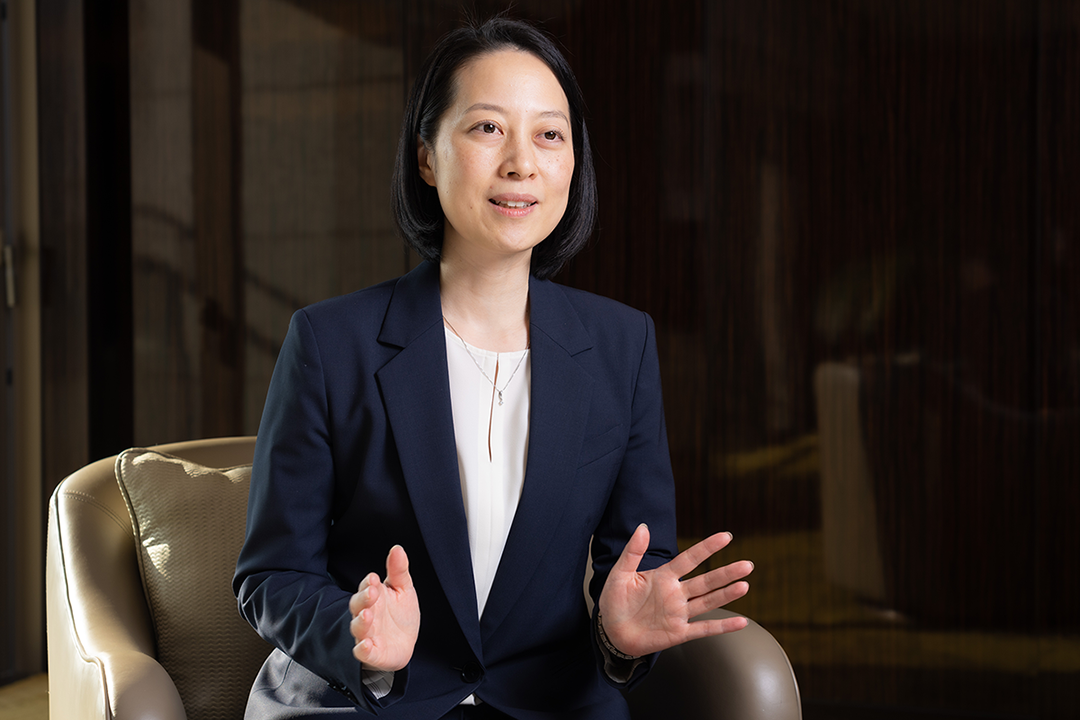
━━━
Now a new sustainability concept, ‘Omotenashi for the future’ has been established.
Yanagihara:
We were motivated to establish the new concept out of a desire for a principle that guides us on what we should regard as important and where we should place our efforts in order to further strengthen initiatives going forward. We want to contribute to the SDGs, but the areas covered by the 17 goals are very broad, so we must consider the manner in which Palace Hotel approaches them. This sustainability concept will become the axis around which all staff members think about sustainability within their daily work and tackle it as individuals.
Koizumi:
‘Omotenashi for the future’ expresses the essence of our company, which operates hotels, and under that concept we have established three pillars as action guidelines. The first pillar is ‘Omotenashi in Service to People,’ which practices thoughtfulness to both customers and coworkers. The second is ‘Omotenashi in Connection with Society,’ which practices harmonious coexistence with the local community. The third is ‘Omotenashi in Harmony with Nature,’ which is essential for a hotel that operates next to the outer garden of the Imperial Palace surrounded by water and greenery.
Earning the Excellence Prize for the Eco Mark Award 2021
━━━
You acquired Eco Mark certification for ‘Hotels and Inns Version 2’ and won the Excellence Prize for the Eco Mark Award 2021.
Yanagihara:
The Eco Mark certification was acquired to take a fresh look back on the endeavors we’ve steadily continued thus far and obtain an objective evaluation. The e-shaped Eco Mark is quite familiar in Japan and a suitable benchmark to which staff can align their awareness. Compiling internal information to acquire certification was a difficult task, given our long history and multifaceted breadth of endeavors. But the fact that we have continued to carry out a wide range of activities from so early on was recognized and led to receiving the award.
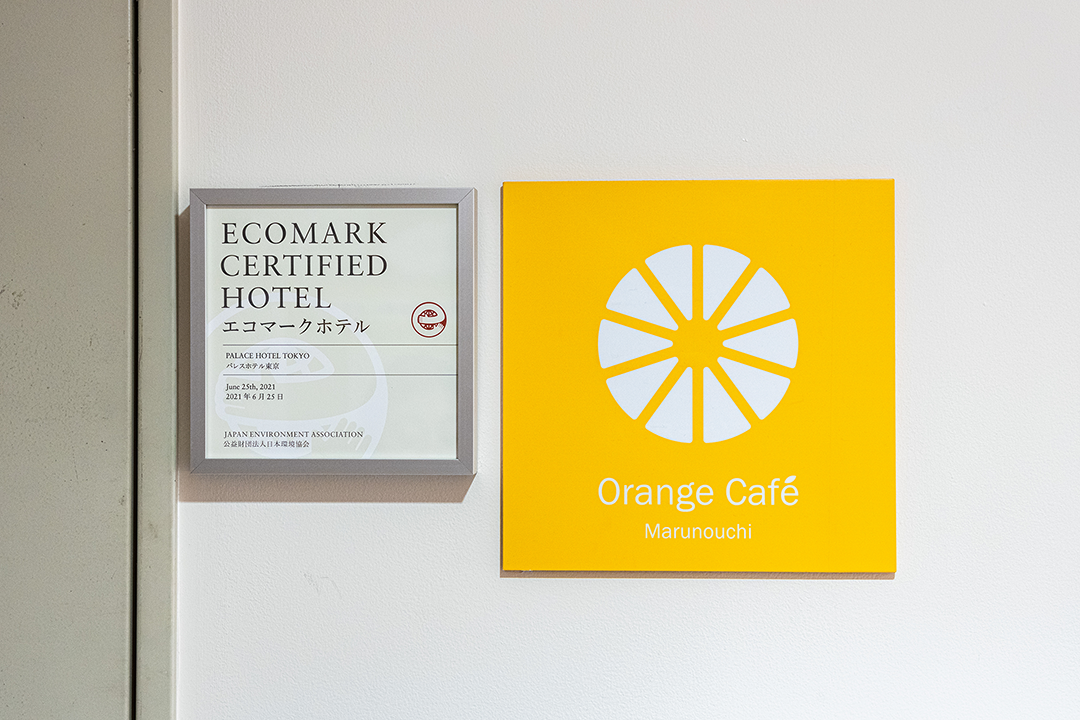
The Eco Mark certification posted at the entrance to the staff cafeteria
Koizumi:
We won the award just when the sustainability concept was established and had begun spreading throughout the company. Our approach that emphasizes learning to understand may have been one of the key points that attracted attention. In a hotel where people are brought together, we believe that the staff’s proper understanding of initiatives and interaction with customers based on correct knowledge is extremely important.
Yanagihara:
I think the sustainability concept has considerably spread among staff through the display of posters on SDGs and communication of information using a dedicated page on the intranet for the Sustainability Liaison Committee. The topic of SDGs has naturally come up in ordinary conversations, and the other day, unbeknownst to us, the lounge bar began offering sustainable syrups. The move toward taking onsite initiatives is growing.
Koizumi:
You could also call ‘Meat Free Monday’ that started at the staff cafeteria an endeavor that is characteristic of Palace Hotel Tokyo. Everyone having a meatless meal once a month prompts people to think of the burden a carnivorous diet puts on the environment. Right around the same time, the hotel’s All-Day Dining Grand Kitchen began offering a plant-based burger, so the meatless meal is significant in the sense that we also try eating what we offer to our customers.
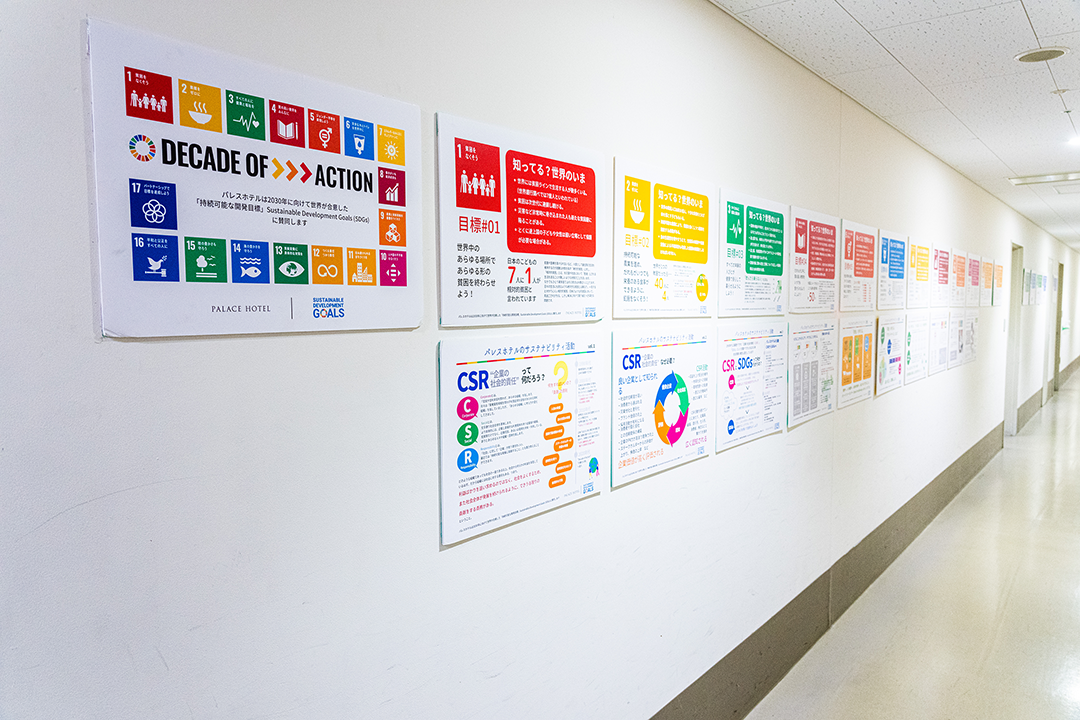
SDGs posters put up in the staff area
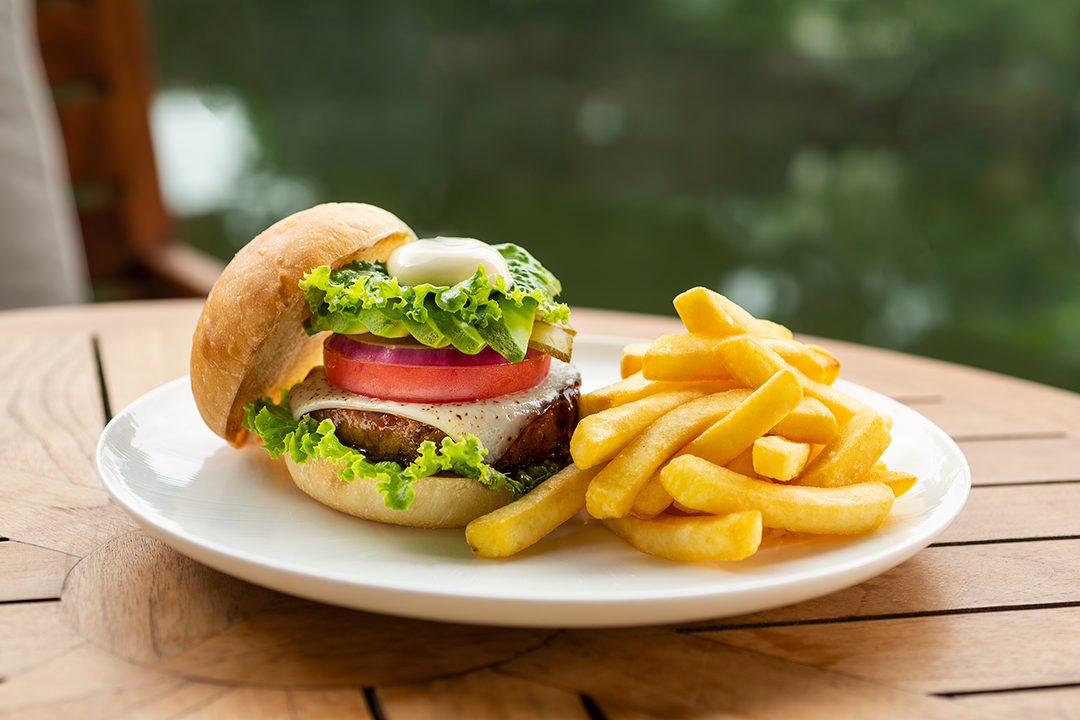
The plant-based burger provided by All-Day Dining Grand Kitchen
Photo provided by Palace Hotel Tokyo
Photo provided by Palace Hotel Tokyo
Products utilizing lost food that create customer satisfaction
━━━
As a part of measures against food loss, you have begun selling cake salé, which is made from imperfect vegetables.
Yanagihara:
We’ve been focusing on food loss countermeasures. Previous endeavors include providing staff cafeterias with farm produce cultivated using the food waste-based fertilizer Eco Palace, and selling ‘hashikko (edge) roll cake,’ a product that takes scraps from the popular Japanese-style shortcake and turns them into a roll cake. The cake salé is the first endeavor we’ve tried in cooperation with the FOOD LOSS BANK, which tackles the issue of food waste. The product is made with a generous amount of vegetables from farms introduced by the FOOD LOSS BANK. Those vegetables would’ve been disposed of simply because they are imperfect, but instead are used to create cake salé chock-full of ingredients.
Koizumi:
Cake salé is a savory cake that can be enjoyed like a side dish. It’s perfect as a simple breakfast or paired with wine. Though it’s made with lost food that would’ve been discarded, our chefs have exercised ingenuity in its creation without making any compromises so we can serve it to our customers with confidence in its delicious taste.
Yanagihara:
The most difficult issue with lost food is being unable to anticipate a stable supply since we can’t know how much of what vegetables will be available in a certain period. Therefore, the vegetables in cake salé differ each time. Through trial and error, we settled on cake salé as a delicious product that can be confidently offered even if the ingredients change. It’s well-liked by our customers and has become a popular product that immediately sells out.
Koizumi:
In our second endeavor, in November 2021 we began offering parfait glace in the lobby lounge made with strawberries marked for disposal. This product has a higher stability since frozen strawberries are used, so I feel that we’re clearing hurdles in food loss utilization little by little. Moreover, we’ve always regarded eradicating food loss in the first place as important, and the French restaurant, Esterre that opened in 2019 is a good example of that. Esterre purchases organically grown vegetables from farms it exclusively contracts with and prepares dishes using methods that utilize every part, including the skin and core, so there is almost no food wasted. Also, as a sustainable endeavor other than food loss, organically grown vegetables are purchased from exclusively contracted farms to provide food experiences practicing safe, secure local production for local consumption.
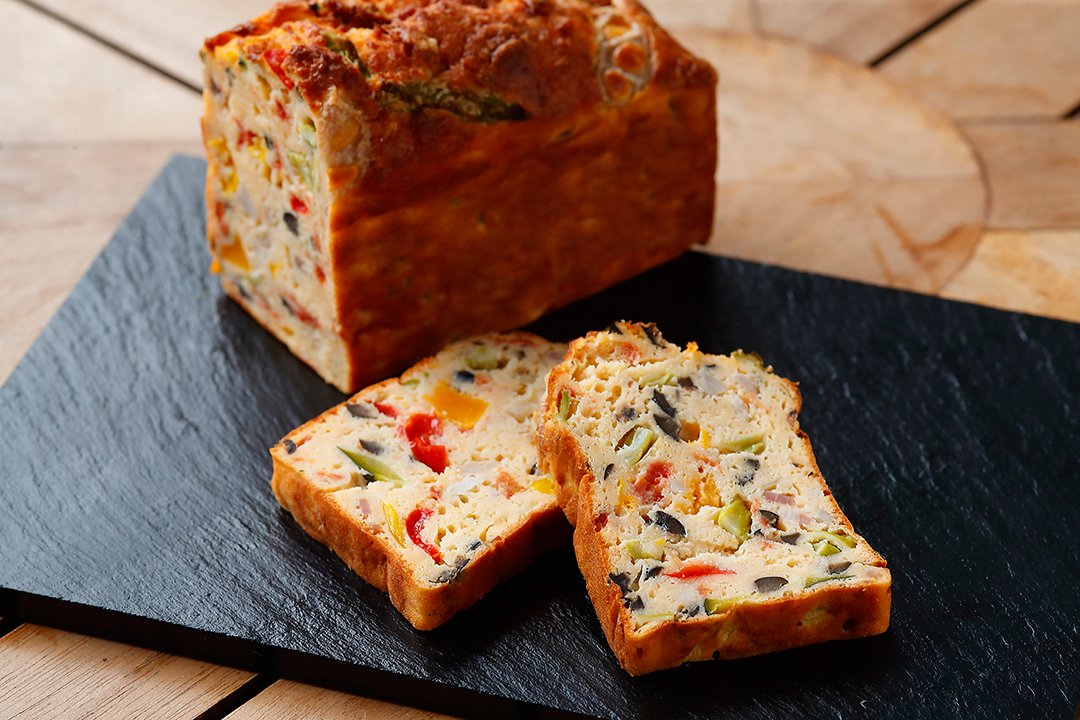
Cake salé made with imperfect vegetables
Photo provided by Palace Hotel Tokyo
Photo provided by Palace Hotel Tokyo
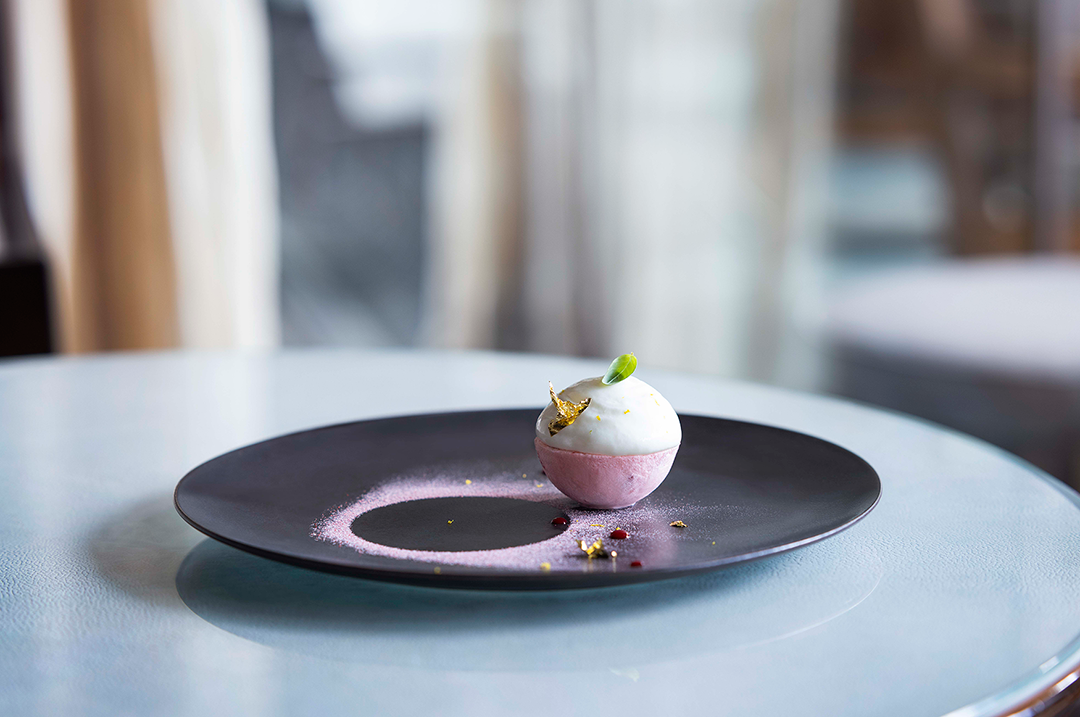
Strawberry parfait glace
Photo provided by Palace Hotel Tokyo
Photo provided by Palace Hotel Tokyo
Turning Eco Palace into futuristic electric energy
━━━
In winter 2021, you carried out the very unique challenge of using electricity collected through the food waste-based fertilizer Eco Palace to illuminate Christmas tree lights.
Koizumi:
Yes. That was an initiative that utilized the patented technology of ‘micropower collection’ held by tripod design Co., Ltd., which conducts design and technology R&D. That was the first time it was used in a commercial environment.
Micropower collection is a technology that collects small units of electric power through the medium of various natural objects. In this instance, the electric source for the decorative lights was soil that was mixed with Eco Palace. At first, we were also really amazed that electrodes inserted into soil collect electricity. The movements of microorganisms within Eco Palace facilitate the passage of electric current and preserve the condition of soil that is suitable for electrolytic substances.
Micropower collection is a technology that collects small units of electric power through the medium of various natural objects. In this instance, the electric source for the decorative lights was soil that was mixed with Eco Palace. At first, we were also really amazed that electrodes inserted into soil collect electricity. The movements of microorganisms within Eco Palace facilitate the passage of electric current and preserve the condition of soil that is suitable for electrolytic substances.
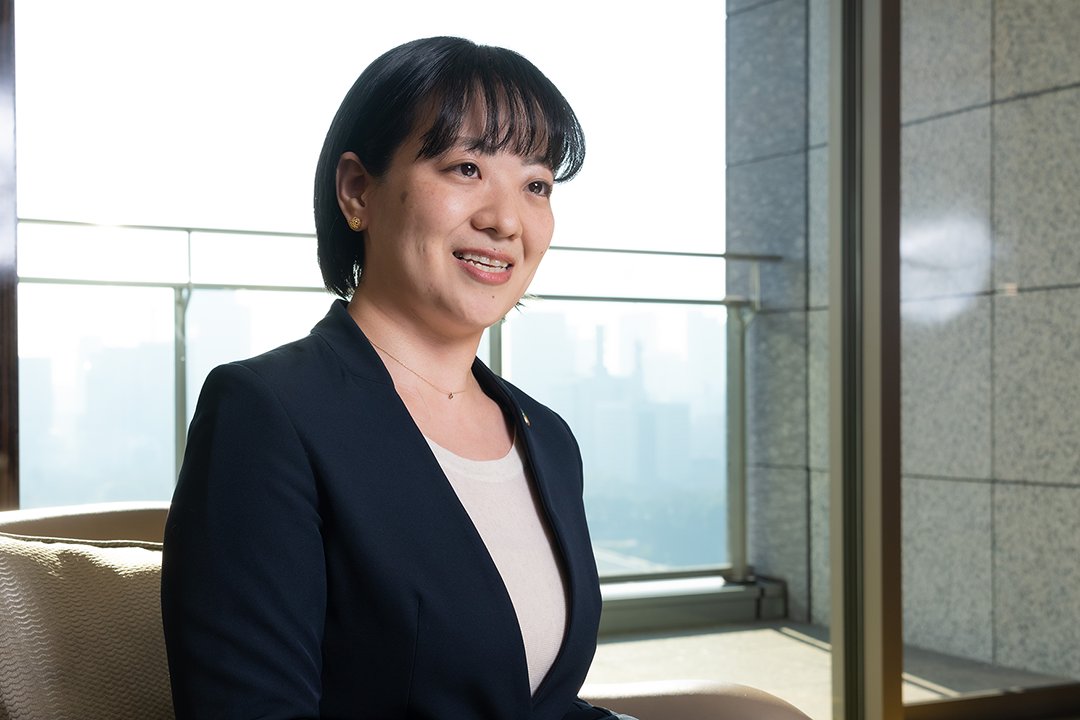
Yanagihara:
We never imagined that Eco Palace would become electric energy. In 2020, tripod design held a press conference on micropower collection at our hotel, and that connection led to the collaboration. The recycling-oriented system of Eco Palace we’ve been cultivating for so long and tripod design’s technology that collects electricity through nature are extremely compatible, and a shared appreciation for sustainability was behind the collaboration.
Koizumi:
Initially when the project started, there was the issue of not being able to obtain sufficient electricity for commercial use because the technology is so new. However, everyone in the research team repeatedly conducted experiments and improved the technology at a dizzying speed so that we received the final plan in October 2021. Over 2,500 decorative lights were illuminated 24 hours a day for over a month using only soil that contained Eco Palace. Lighting up the main tree in the lobby was a huge challenge for both of us.
Yanagihara:
Our customers were also able to see the electrodes inserted into soil that filled a clear case. Many stopped to read the explanatory panel and ask staff questions, showing strong interest. We hope they enjoyed a recycle-oriented Christmas that was unique to Palace Hotel Tokyo, which values harmony with nature.
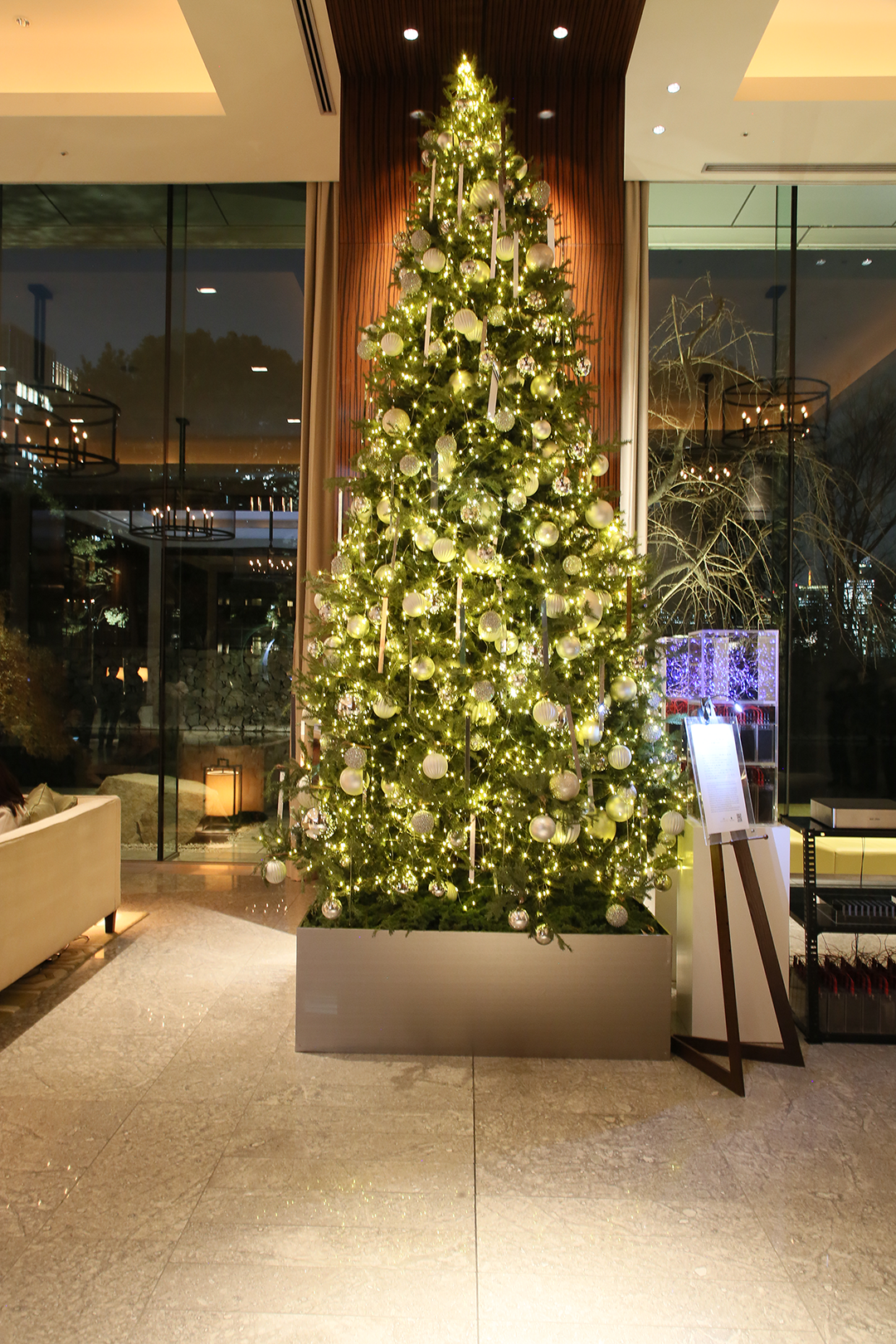
The main Christmas tree during the 2021 Christmas season
Photo provided by Palace Hotel Tokyo
Photo provided by Palace Hotel Tokyo
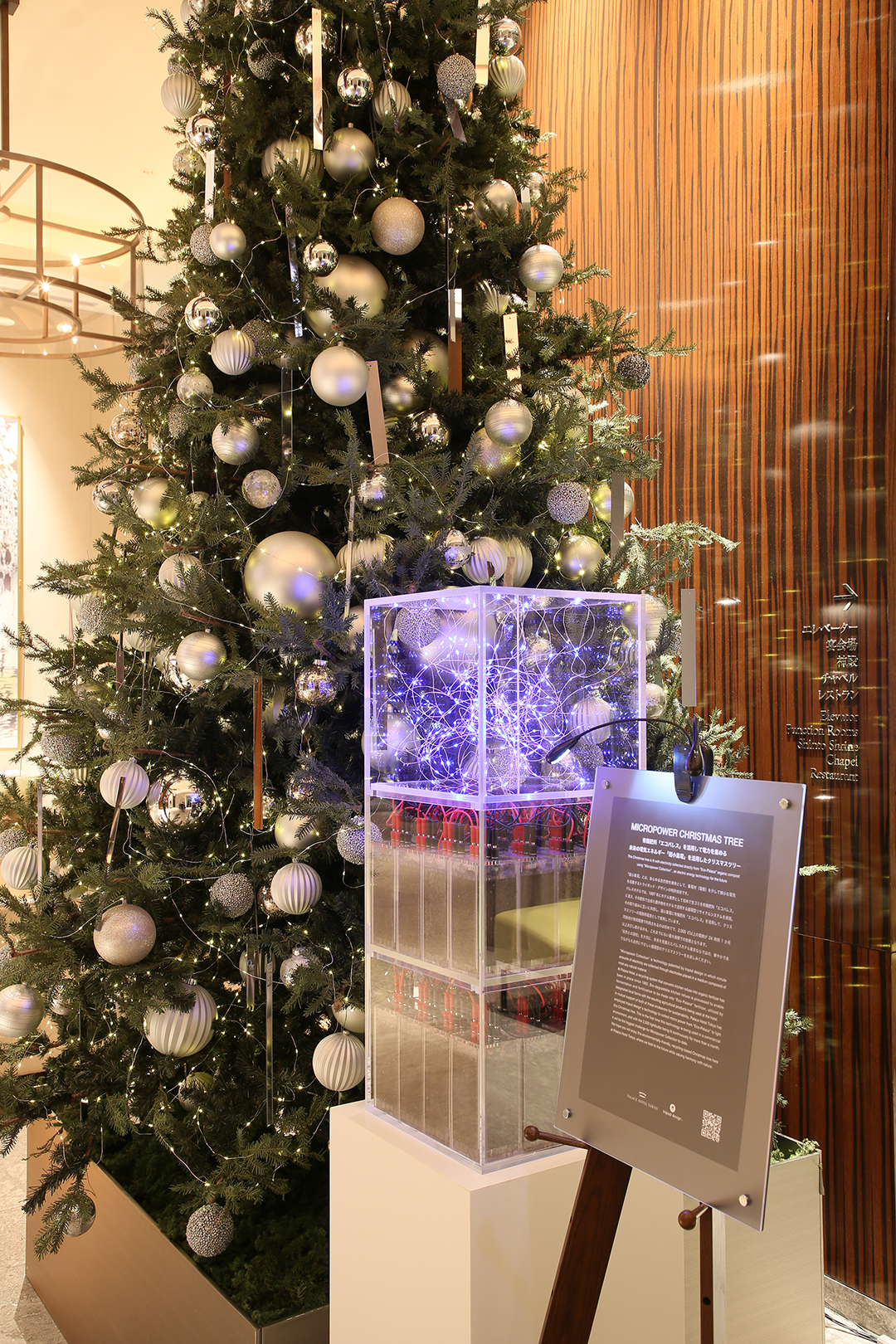
Electricity is collected from electrodes inserted into Eco Palace inside a clear case
Photo provided by Palace Hotel Tokyo
Photo provided by Palace Hotel Tokyo
Growing possibilities for the future through various joint endeavors
━━━
As a venue, how do you think sustainability initiatives impact business?
Yanagihara:
Recently, environmentally friendly hotel operation has become a new standard for accommodations contracts, primarily among overseas customers. Going forward, that will likely also become a growing trend for choosing venues for MICE events. Our company believes it’s important to have choices available so that we can provide services that align with organizers’ principles. For example, when faced with the need to avoid offering bottled water, what kind of suggestions can we give? To be able to respond, it’s essential that we ourselves acquire correct knowledge.
Koizumi:
Lately, various organizations and groups are intensifying activities involving sustainability and SDGs. A large international meeting sponsored by the Japanese government* held at our hotel the other day is one such example. Our management staff got a close-up look at the in-depth discussions by world leaders on the themes of health, food and prosperity. I think it’s important for us to boost our awareness to the same level as society and commit to achieving ‘Omotenashi for the future’ so that we continue being the hotel of choice.
※
Tokyo Nutrition for Growth Summit held in December 2021
━━━
Please tell us if there is any area you would like to bolster as you look to the future.
Koizumi:
I can think of various paths we could take, but one of the efforts we’re working on now is reducing disposable plastic used for amenities in the guest rooms. The guest rooms are the ‘face’ of the hotel, and the golden rule is to avoid making improvements at the expense of customer satisfaction, given that there are many guests who look forward to the amenities. We’re considering providing amenities in forms that many would readily accept, such as switching from plastic to wooden products and simplifying packaging.
Yanagihara:
The Marunouchi area has such an abundance of greenery that overseas customers are surprised that this place exists in the middle of an urban center. If we could fully communicate that attractive feature, it would likely lead to bringing events such as MICE conventions to the area. Though we’re limited in what we can do alone, I think collaborating with other companies that share our ideas increases the array of possibilities, so continuing on from our projects with the FOOD LOSS BANK and tripod design, I hope to increase the number of successful collaborations.
